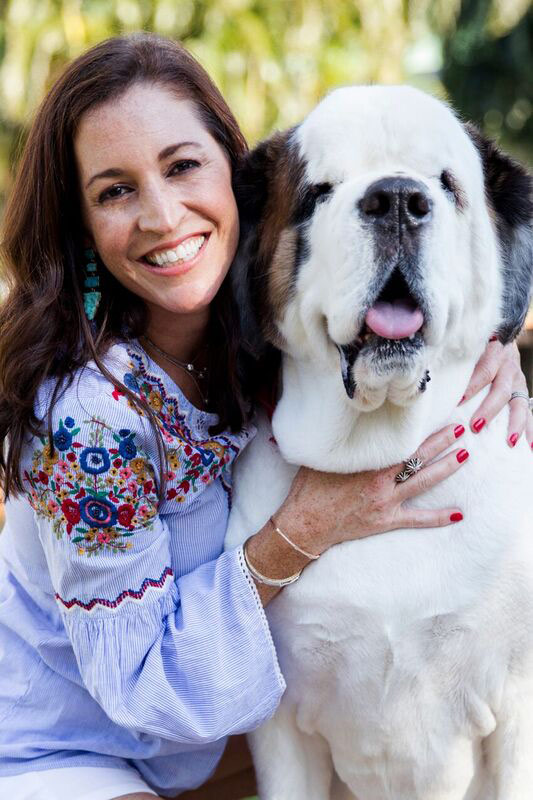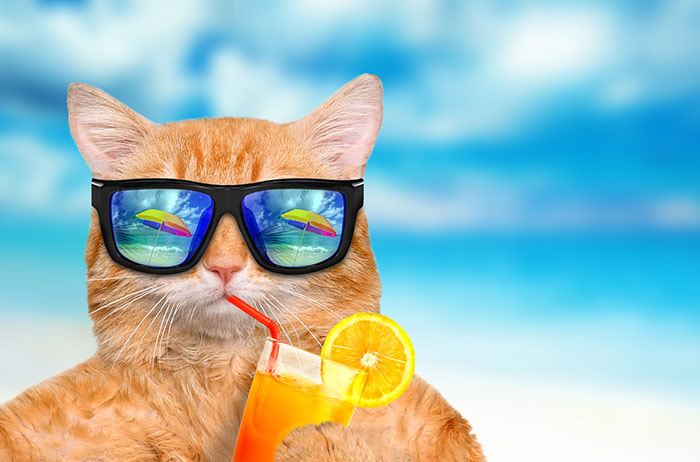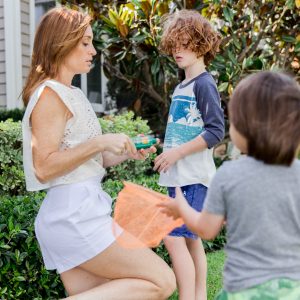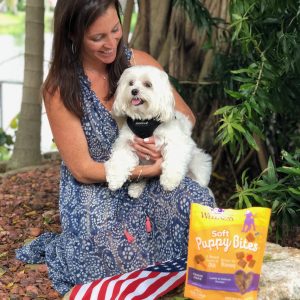
7 Summer Safety Tips for Pet Parents – How to Avoid the ER
For all us Floridians, there is no denying it – SUMMER IS HERE. The heat is already overwhelming, the insects are feasting, and the pool is as mainstream as the couch. In addition to adjusting to the change in weather ourselves, our pets are going through a period of adjustment too. I see an influx of “summer” emergencies starting now, and it can be stressful for us and for our pets. I’m a firm believer that summer pet safety is all about education and prevention. So I want to share my most commonly seen pet emergencies this time of year and how my pet parents can avoid trips to see me with 7 summer safety tips for dogs and cats.
7 Summer Safety Tips for Dogs and Cats
1. Heatstroke in Pets
Heatstroke is by far the most upsetting summertime emergency I see. If not treated quickly enough, this devastating complication can result in death. Heatstroke is a condition caused by the body overheating, usually as a result of prolonged exposure to or physical exertion in high temperatures.
Imagine wearing a fur coat during the summer and sitting outside for an hour or so. That is what it is like for our pets. Make sure your pets have access to shade, water, and a cool area. Try to pick times of the day that are not so hot, such as the early morning or evening, for walks. Always carry a water bottle for your pet.
It is important to note that Brachycephalic breeds (dogs that have a flat and wide skull shape, such as bulldogs, pekingese, and pugs) and overweight dogs are more prone to heatstroke. Extra preventative measures should be taken for these dogs during hotter months.
2. Cookouts and Food
Summer is great for BBQs, and I certainly love hosting, but these cookouts can be harmful to our pets. I see a lot of upset stomachs during the summer because of table scraps and foods that guests give pets. Dogs and cats are used to eating the same food every day. Their gastrointestinal tracts develop a natural flora, or bacteria, that specifically digests their regular food. When they get something that they aren’t normally accustomed to, such as burgers or hot dogs, they can develop severe inflammation with vomiting and diarrhea. It can also lead to more serious conditions such as pancreatitis.
In addition to an upset belly, many foods in large quantities are toxic to our pets, such as grapes, onions, garlic, and raisins. Grapes and raisins are safe for cats, but keep onions and garlic away from them.
Some cookout foods can also be a risk of choking or obstruction such as corn on the cob, fruits with pits, and foods with bones, toothpicks, or skewers. I have surgically removed all of these items from a pets’ intestines. Surgery can be very costly and stressful.
Make sure to talk to any guests, especially kids, before summer parties. Remind them not to feed your pets any food. You want to enjoy the party, too, not spend it looking after a pet with an upset stomach.
3. Hot Sidewalks and Pet Paws
Black pavement (or asphalt) can get very hot and can harm your pets’ paws. Avoid these areas during the hottest times of the day. Or ask your dog walker to keep your pet on the grass.
Another common injury I see is ripped or torn paw pads. Many times, dogs will run around excessively in circles on the pavement. This behavior causes torn paw pads. Check paw pads often for injury during the hot summer months.
4. Pools
Pools and lakes are great exercise and great fun for our pets. Keep in mind that not all dogs can swim. Some may not like water at all. Certain breeds, like pugs and terriers, often have trouble swimming. If your pet is not accustomed to swimming, watch them carefully when they are outside near the pool. I do see drowning emergencies at the hospital, which can be very scary.
I will never forget when I was 7 months pregnant and my 140 pound Saint Bernard, Dory, fell into the intercoastal waterway. Dory does not swim well. My adrenaline took over, and I somehow hoisted her up onto the dock with no injuries for anyone involved. Since then, we have installed a baby gate that protects the kids and pets from the pool and intercoastal.
If your pets enjoys the water, use an ear cleaner with a drying agent after swimming. Ear infections are very common.
5. Parasites, Bee Stings, and Snakes
We see ticks and fleas all year round in south Florida, but these pests are worse during the spring and summer seasons. I see more pets during the summer with bee stings and snake bites. Please refer to my blog on Springtime Pet Hazards for more information on these parasites and insects and how to protect your pet.
6. Fireworks
Many dogs are terrified of the loud sounds of fireworks. These fears can present with mild signs like hiding or more severe signs like destruction, shaking, and harming themselves. I see many of my clients right before the Fourth of July for sedatives for their pets.
If your pet has a fear of fireworks, prepare as best you can. Take them to a place where the fireworks cannot be heard. If that is not an option, your veterinarian can prescribe medications for anxiety and fear.
7. Hurricanes
For all of us Floridians, June officially kicks off hurricane season. Hurricanes are a very real and scary threat in Florida during the summer, and preparation is crucial. Make sure you:
- Arrange for a safe haven for your pet in case of evacuation.
- Have emergency supplies and travel kits ready.
- Choose designated caregivers if you are unable to care for your pet during a hurricane.
- Make sure your pet is microchipped.
Visit the Red Cross for more information and details on preparing for hurricane season with your pets.
Final Thoughts
I hope these summer safety tips for dogs and cats will keep your pets safe and healthy during the summer months. Summer is a time for water sports, cookouts, family, fun, and relaxation. Prepare as well as you can, and avoid these common pet emergencies. You will help keep summer fun and laid back for you and your pet!





